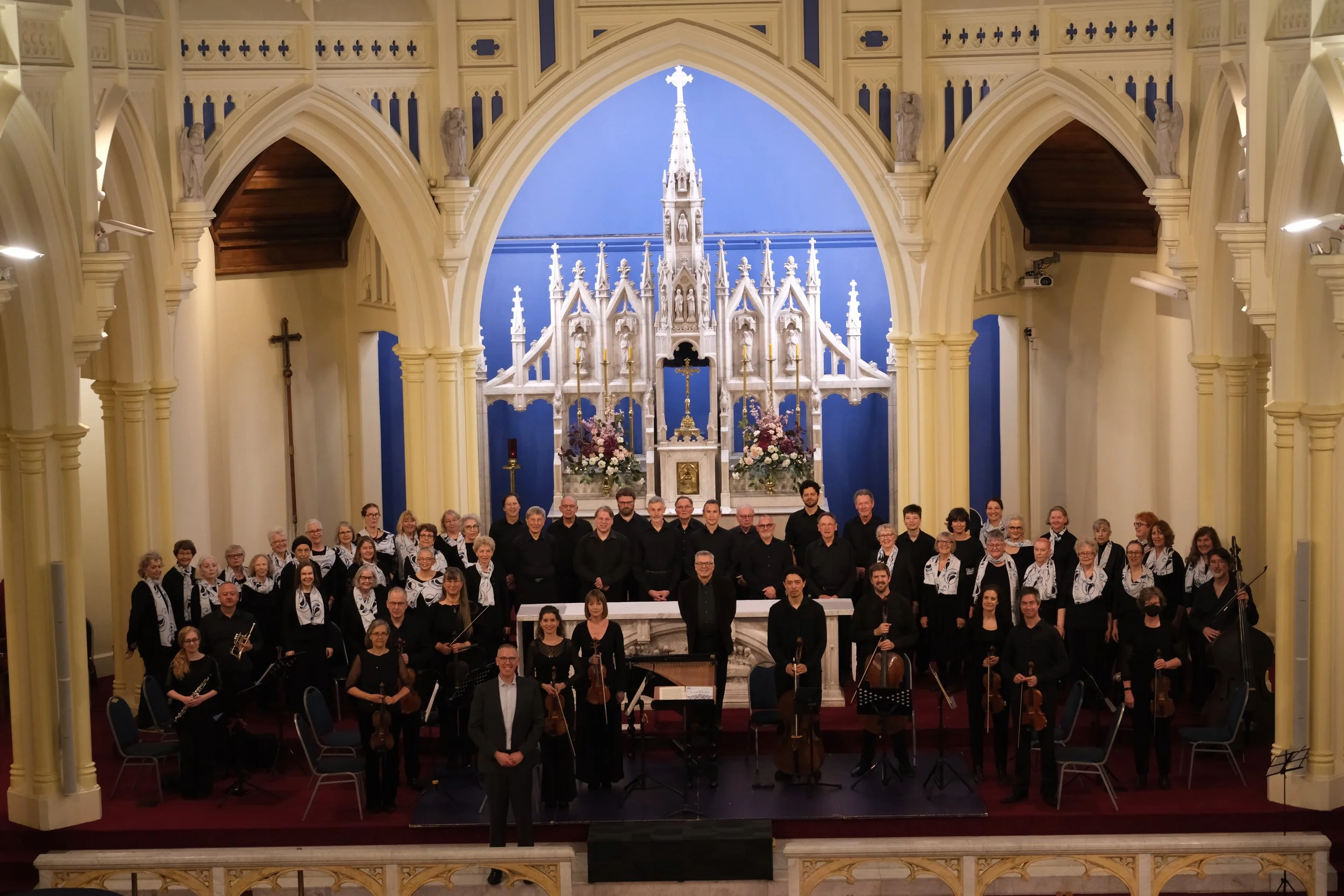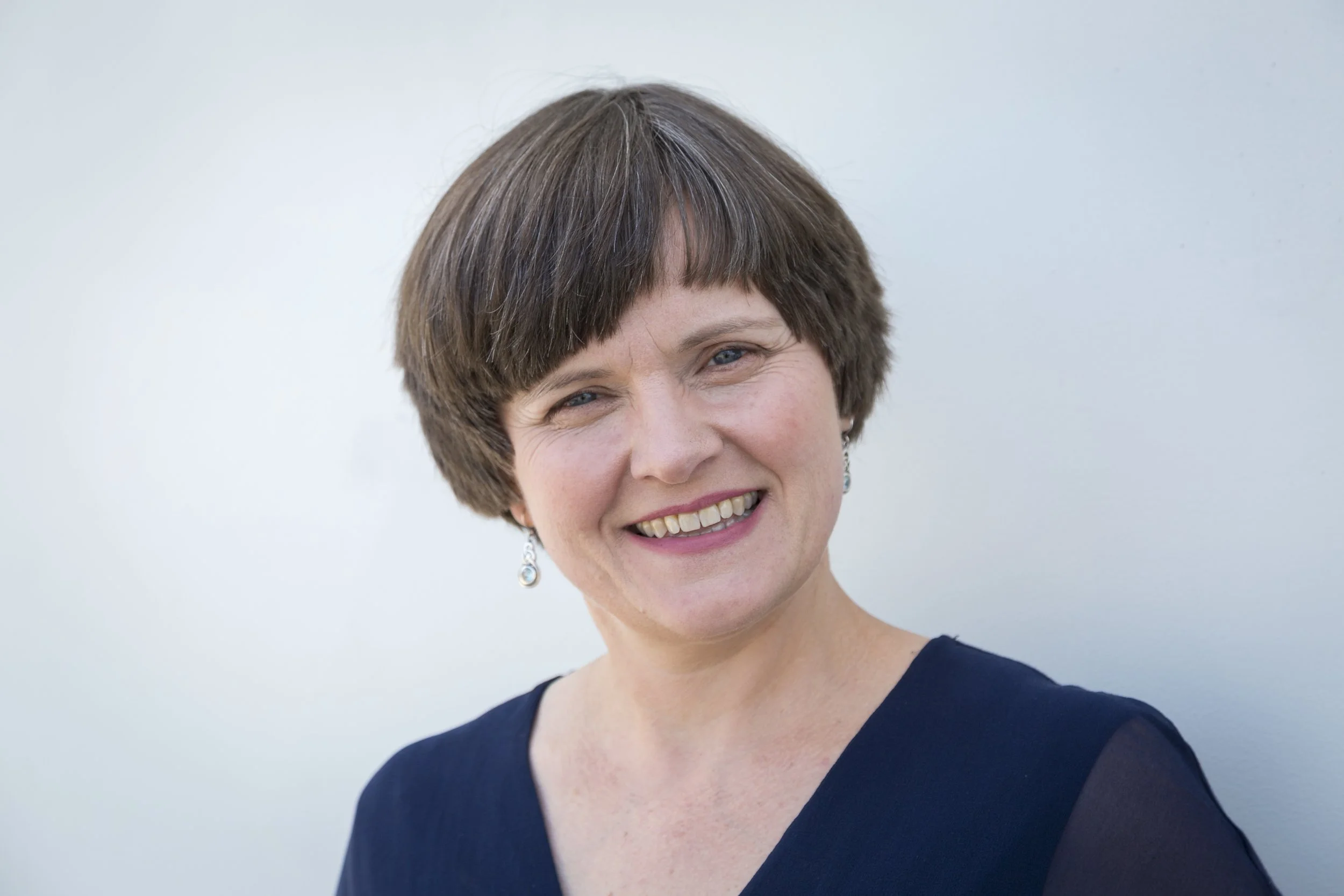Wellington’s Bach Choir: back to the Baroque
The Bach Choir of Wellington with The Chiesa Ensemble
Photo credit: Simon Woolf
Wellington’s Bach Choir returned to its roots in the Baroque period for their final concert of the year, presenting music by Bach, Corelli and Vivaldi in an attractive programme at St Mary of the Angels Church. Conducted by Shawn Michael Condon, the Choir’s Musical Director, the programme was accompanied by the accomplished musicians of the Chiesa Ensemble, with early music specialist Douglas Mews at the harpsichord.
The concert began with J S Bach’s lovely cantata Nun komm, der Heiden Heiland. This cantata opens with a grand fantasia for the chorus, followed by four sections sung by soloists before the choir returns for the final joyous “Amen”.
Tenor Theo Moolenaar
“…a lovely voice and unfussy musicality.”
Operatic tenor Theo Moolenaar brought his lovely voice and unfussy musicality to the recitative, Der Heiland is gekommen, with sensitive continuo accompaniment by Mews and cellist Ken Ichinose. His singing was also fine in the da capo aria that follows, Komm, Jesu zu deiner Kirche, but the performance would have been enhanced by more subtle phrasing in the instrumental accompaniment and a lighter rhythmic bounce, under conductor Condon. Moolenaar also sang the short bass recitative that follows, Siehe, ich stehe vor der Tür und klopfe an (See, I stand before the door and knock), Bach imitating the knocking with pizzicato strings.
Singer Rowena Simpson is at home in this repertoire, which suits her lovely ringing soprano, and sang the aria Öffne dich, mein ganze Herze (Open, my whole heart) with a musicianly and communicative style. The short final chorus brought the cantata to a joyous conclusion.
The Chiesa Ensemble, comprised of professional musicians, mostly from NZSO or Orchestra Wellington, has been working with the Bach Choir for over two decades. As well as accompanying the programme’s choral works, they presented Arcangelo Corelli’s Concerto grosso in G minor Opus 6, No. 8, often called the Christmas Concerto, led from the violin by guest concertmaster Anne Loeser. It was a lovely performance of a delightful work, played with urgency and zest in the fast movements, and grace in the slow ones. The resonant acoustic of St Mary’s presents some challenges to Baroque counterpoint, but the ensemble work under Loeser’s leadership was crisp and well-managed.
The major choral work on the programme was Vivaldi’s much-loved Gloria. In the early 18th century Vivaldi set the text “Gloria in excelsis Deo” from the Latin Mass as a multi-movement “cantata-mass”, probably for his choir of orphaned girls, residents at the Ospedale della Pietà in Venice, where the composer known as the ‘Red Priest’ worked for three decades as musical director.
Vivaldi’s Gloria then disappeared for over two centuries, revived by Italian composer Alfredo Casella during a ‘Vivaldi Week’ in Siena just after the outbreak of the 2nd World War. Today the expressive and exuberant Gloria is deservedly one of the most popular and frequently performed works in the choral repertoire.
The Bach Choir offered a pleasing and extrovert performance, enhanced by bright trumpet and oboe playing in the lively instrumental introduction. In such a resonant acoustic, choral entries in contrapuntal writing need confidence, strength and clarity and these qualities were occasionally lacking in the opening chorus. Conductor Condon wisely chose some tempi on the conservative side, which didn’t add to the excitement but assisted with the necessary clarity in the choral lines.
Soprano Rowena Simpson
“…at home in Baroque repertoire.”
Singers Simpson and Maaike Christie-Beekman sang the soprano and alto solo parts. Their lovely duet Laudamus te was beautiful balanced and flexible, and Simpson’s later duet with oboe was also a musical highlight.
There’s a danger of predictability in Vivaldi’s music and the Gloria needs rhythmic zest to maintain forward momentum and avoid flabbiness. The Domine Fili Unigenite was taken at a good clip, but the choir occasionally lagged behind the instrumental part. This performance, using modern instruments and pitches, was not intended to be “authentic”, but would have benefited from the lightness, pace and bounce found in performances by Baroque period specialists.
The Choir shone in the more homophonic sections, displaying its vocal strengths, fine tone and good blend of voices. Soloist Christie-Beekman brought drama to the music in the Qui sedes ad dexteram Patris and the Choir followed with strong singing in qui tollis peccata mundi.
Vivaldi brightened the texture with trumpet and oboe in the penultimate section, splendidly played by members of the Chiesa Ensemble, and the best contrapuntal singing of the concert was heard in the final fugal Cum Sancto Spiritu, providing a rousing finale to the concert and delighting the good-sized audience.
The Bach Choir of Wellington with The Chiesa Ensemble, music by Vivaldi, Bach and Corelli. Shawn Michael Condon (conductor), Anne Loeser (Guest Concertmaster), Rowena Simpson (soprano), Maaike Christie-Beekman (mezzo-soprano), Theo Moolenaar (tenor), Douglas Mews (continuo). At St Mary of the Angels Church on 9 November, 2024.



